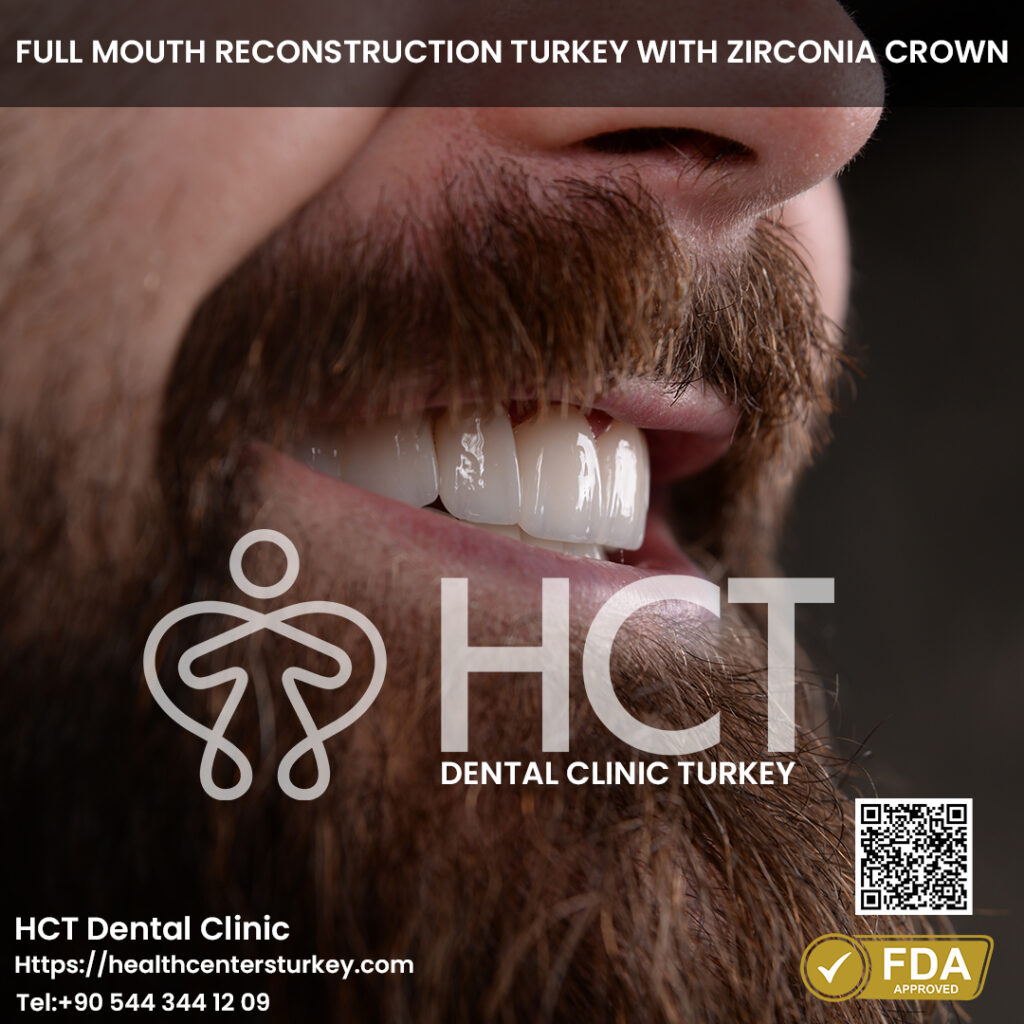Restore Your Oral Health with Cutting-Edge Dental Treatments in Turkey
Restore Your Oral Health with Cutting-Edge Dental Treatments in Turkey
Blog Article
Transform Your Oral Health using Porcelain Veneers
Dental implants have become a popular answer for these seeking to replace missing teeth. Understanding how these implants can affect adjacent teeth is crucial for anyone contemplating this process, in addition to for dentists and specialists concerned in dental care.

One important aspect is that dental implants are designed to be anchored into the jawbone, which means they're independent of adjacent teeth. Unlike dental bridges, which regularly require the alteration of neighboring teeth, implants can fill the gap without compromising the health or structure of these surrounding teeth.
This independence helps keep the integrity of adjacent teeth. When a tooth is lost, there could be a natural tendency for neighboring teeth to tilt or shift into the empty area. Such motion can lead to misalignment, which can affect chew and total oral health. By putting an implant, you successfully prevent this potential shift, selling better alignment in the long run.
Investigate Your Options for Tooth Replacement Solutions
Additionally, dental implants assist keep bone density within the jaw. A natural tooth root provides stimulation to the encircling bone, maintaining it healthy and robust. When a tooth is missing, the bone can begin to deteriorate because of lack of stimulation. With a dental implant mimicking a natural root, bone loss could be minimized, which not directly benefits adjacent teeth by preserving the general structure of the dental arch.
While dental implants are advantageous, improper placement can impact neighboring teeth. If an implant is positioned too shut to another tooth, it might exert undue stress on that tooth, leading to discomfort or potential harm. Proper planning and imaging methods are important for avoiding such issues.
Achieving a Stunning Smile with Implants and Veneers
Moreover, sustaining good oral hygiene is essential after receiving an implant. If not properly cleaned, surrounding teeth may become susceptible to dental issues such as decay or gum disease. This underscores the significance of diligent oral care following the process to ensure each implants and adjacent teeth stay wholesome.
Regular dental check-ups are also very important for monitoring the health of surrounding teeth. Dentists can identify any shifts or potential problems early, permitting for well timed interventions. This proactive approach ensures that each the implant and adjacent teeth can coexist with out complications.
Revitalize Your Teeth with Cutting-Edge Dental Treatments in Turkey
Another consideration is the influence of implants on chunk force. When a single tooth is missing, the load of chewing might shift to adjacent teeth, doubtlessly leading to put on or strain. Implants restore correct chunk dynamics by redistributing forces in the mouth, which may shield surrounding teeth from undue stress.
Some sufferers may increase considerations in regards to the appearance of dental implants. Well-placed implants can blend seamlessly with existing teeth, enhancing total aesthetics. In distinction, failing to replace a missing tooth can lead to aesthetic points, together with collapsing of facial structure and changes in smile dynamics.
It's also value discussing the psychological features of dental health. Experiencing tooth loss can adversely affect one’s vanity and willingness to interact socially. By learn the facts here now restoring your smile with implants, you can positively affect not solely your oral health but also your emotional well-being.
Long-term success of dental implants often hinges on various components, together with the patient's health, maintenance habits, and the quality of the initial procedure. If adjacent teeth are healthy and properly cared for, the chances are high that they'll continue to thrive alongside the implants.
Why Turkey is a Top Destination for Dental Treatments
In conclusion, dental implants play a crucial function in not just restoring individual smiles, but in preserving the health and structure of adjacent teeth. By preventing shifting, sustaining bone density, and redistributing chunk forces, implants can ensure that surrounding teeth remain in optimal condition. Proper placement, hygiene, and regular dental visits can additional improve the advantages of dental implants, resulting in a more healthy, extra assured smile for years to come back.
- Dental implants might help keep the alignment of adjacent teeth by providing a stable anchor, stopping adjacent teeth from shifting into the hole left by a missing tooth.
- The presence of an implant could stimulate bone development in the jaw, serving to to preserve the overall structure and integrity of the adjacent teeth.
- Unlike traditional bridges, implants don't require alteration of surrounding teeth, thus preserving their energy and anatomy.
- Implants can improve the distribution of chunk forces evenly across the dental arch, reducing the stress on neighboring teeth throughout chewing.
- A well-integrated dental implant can decrease the chance of bone loss in the space surrounding adjacent teeth, contributing to their long-term health and stability.
- The aesthetics of adjacent teeth can be improved because of the support offered by implants, which might result in higher overall cosmetic outcomes.
- With proper placement, dental implants can prevent gum recession around adjacent teeth by maintaining adequate dental architecture.
- Implants might help mitigate the risks of periodontal disease in nearby teeth by selling healthy gum tissue and providing a washable surface.
- Long-term success of dental implants can lead to improved oral hygiene routines, which in turn advantages the health of surrounding teeth.
- The improved practical ability of an implant can encourage patients to chew more effectively, thus rising saliva production and aiding in the protection of adjacent dental tissues.undefinedHow do dental implants affect adjacent teeth?
What are dental implants and how do they interact with adjacent teeth?undefinedDental implants are synthetic tooth roots which would possibly be surgically placed into the jawbone. They provide a stable foundation for replacement teeth whereas making certain minimal disruption to adjacent teeth, preserving their integrity and alignment. Revitalize Your Smile with Innovative Dental Technology.
Enhancing Patient Experience in Turkish Dental Clinics
Can dental implants trigger problems for nearby natural teeth?undefinedGenerally, dental implants don't hurt adjacent natural teeth. However, if the implant is not positioned appropriately or if there’s inadequate oral hygiene, it could lead to issues similar to adjacent tooth decay or gum disease.

Will getting a dental implant change the finest way my adjacent teeth feel?undefinedMost sufferers report no change within the sensation of adjacent teeth after implant placement. However, it might take some time to adjust to the presence of the implant, similar to how one could adapt to different dental restorations.
Can dental implants help protect the health of adjacent teeth?undefinedYes, dental implants might help maintain the health of adjacent teeth by preventing bone loss that may happen after tooth loss. This preservation supports the alignment of nearby teeth, lowering the danger of shifting or misalignment.
Upgrade Your Smile with Dental Implants in Turkey
Do I need to modify adjacent teeth when getting an implant?undefinedTypically, adjacent teeth don't want alteration when inserting an implant. This is likely one of the advantages of dental implants over traditional bridges, which frequently require reshaping adjacent teeth for help.
How does the healing strategy of an implant have an result on nearby teeth?undefinedThe healing course of includes osseointegration, where the implant fuses with the jawbone. pop over to these guys During this time, adjacent teeth stay unaffected and retain their perform, though it’s important to comply with post-operative care recommendations. Extensive Cosmetic Dentistry Services for Every Budget.
Remarkable Results from Dental Treatments in Turkey
Can dental implants lead to bone loss round adjacent teeth?undefinedIf dental implants are placed correctly and cared for adequately, they want to not lead to bone loss round adjacent teeth. In reality, they may help stimulate bone progress, combating the natural bone loss that usually follows tooth extraction.
What precautions ought to I take to guard adjacent teeth after getting an implant?undefinedRoutine dental hygiene, including brushing and flossing, together with regular dental check-ups, is essential. Avoiding exhausting meals and following your dentist’s aftercare instructions may even protect each the implant and adjacent teeth.
Is it common for adjacent teeth to shift after an implant is placed?undefinedIt's not typical for adjacent teeth to shift after an implant placement, particularly when the implant is placed appropriately and maintained correctly. If there’s any movement, it could be as a result of different underlying issues that ought to be evaluated by a dental skilled. Report this page